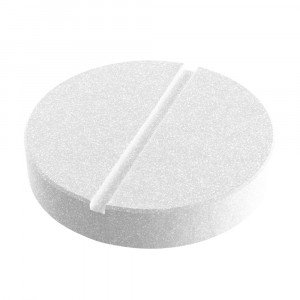 Welcome
Welcome
“May all be happy, may all be healed, may all be at peace and may no one ever suffer."
Renata Limited

Dysmen 500mg

Generic for Diseases
- Toothache
- Mumps
- Reactive arthritis
- Arthritis
- Rheumatoid arthritis
- Acute lupus erythematosus
- Analgesia
- Arthritis
- Back pain
- Dental pain
- Dysmenorrhoea
- Joint pain
- Menorrhagia
- Menstrual cramps
- Mild to moderate pain
- Musculoskeletal and joint pain
- Osteoarthritis / degenerative arthritis
- Pain
- Pain and inflammation
- Pain and inflammation associated R w/ musculoskeletal and joint disorders
- Post-operative pain
- Premenstrual syndrome
- Rheumatoid Arthritis (RA)
Mefenamic acid contains Mefenamic Acid which is a nonsteroidal agent with demonstrated analgesic, anti-inflammatory and antipyretic activity due to its dual action on prostaglandins. It inhibits the enzymes of prostaglandin synthetase and also antagonizes the actions of prostaglandin at the receptor sites.
Mefenamic Acid is indicated for-
- Fever
- Toothache
- Headache
- Migraine
- Primary dysmenorrhoea
- Menorrhagia
- Mild to moderate pain in rheumatoid arthritis and osteoarthritis
- Traumatic pain
- Low-back pain
- Juvenile chronic arthritis in children etc.
Adult:
- 500 mg dose should be given to adults upto three times (1.5 gm total) per day with meals. The dosage may be reduced to 1 tablet (250 mg) three times daily.
- In case of menorrhagia: 500 mg three times daily with meals and from the onset of menses and continued according to the judgement of the physician.
Children:
- 6 months to 1 year: 5 ml three times/day.
- 2-4 years: 10 ml three times/day.
- 5-8 years: 10 ml four times /day.
- 9-12 years: 15 ml four times/day.
Treatment should not be continued for more than 7 days except on the advice of a physician.
It is contraindicated in patients with known hypersensitivity to Mefenamic Acid. It should not be used in patients with peptic ulcer, inflammatory bowel diseases, hepatic or renal impairment. It is also contraindicated in patients, whom aspirin and/or other NSAID's have induced symptoms of bronchospasm, skin rashes etc.
The most frequently reported adverse experiences occurring in approximately 1-10% of patients are gastrointestinal: abdominal pain, constipation, diarrhoea, dyspepsia, flatulence, nausea, Gl ulcers, vomiting, dizziness, abnormal renal function, pruritus, rashes.
It should be administered with caution in allergic diseases especially in asthma. The treatment should be withdrawn in diarrhoea, rashes, cholestatic jaundice, thrombocytopenia, haemolytic anaemia.
Pregnancy & Lactation
The safety of Mefenamic acid on reproductive capacity and pregnancy has not been established. Thus, mefenamic acid should be used in women of childbearing potential and during pregnancy only when the potential benefits are expected to outweigh the potential risks. Trace amounts of Mefenamic acid may be present in breast milk and transmitted to the nursing infant. Thus Mefenamic acid should not be taken by the nursing mother because of the effects of this class of drugs on the infant's cardiovascular system.
Dysmen 500mg and more Available Brands
Plagrin Plus 75mg + 75m...
Ceftipime 500mg / vi...
Covan 1gm / vial
Thyrox 100mcg
Diampa 25mg
Vomiren 0.25mg / 5...
Telpro 80mg
Flontin 250mg
...
To be happy, beautiful, healthy, wealthy, hale and long-lived stay with DM3S.